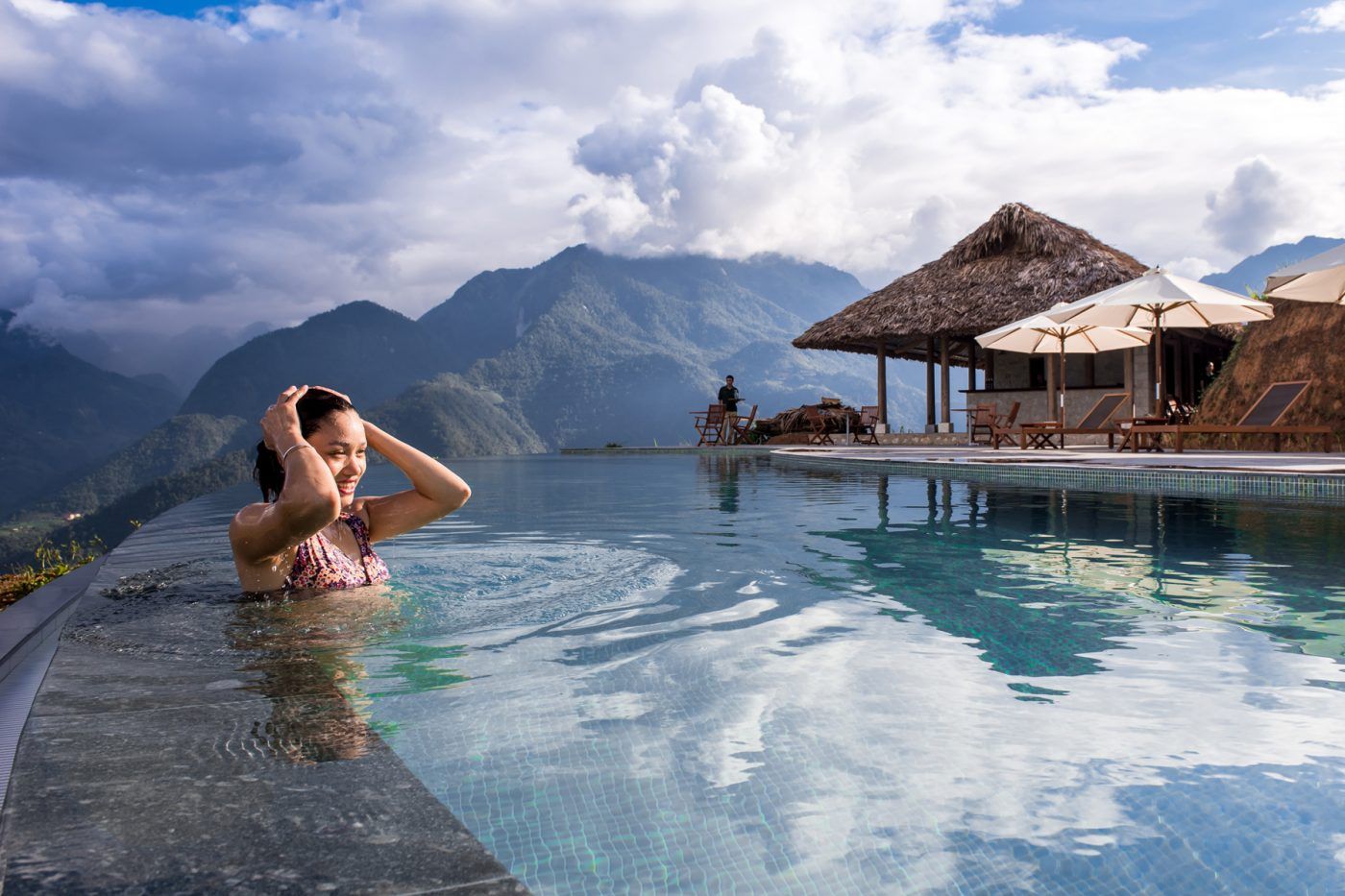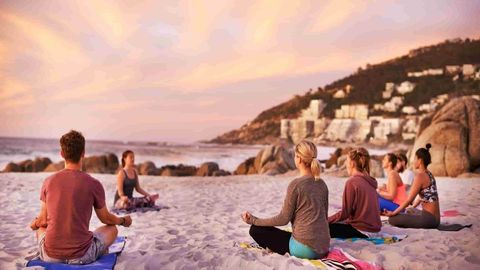These getaways exist because Vietnam offers a balanced mix of calm experiences—such as spa retreats, beaches, and countryside stays—and adventure options like trekking, caving, kayaking, and exploring natural reserves. The country’s long coastline, varied climate, and UNESCO World Heritage locations make it suitable for short vacations and extended travel.

Importance
Vietnam getaways matter today because travel habits worldwide have shifted toward meaningful experiences, nature-based trips, and wellness-focused retreats. The importance of this topic extends across multiple groups:
Who It Affects
-
International tourists seeking beach or cultural escapes
-
Domestic travelers looking for weekend trips
-
Adventure seekers interested in mountains and caves
-
Families choosing calm and nature-friendly destinations
-
Digital nomads and remote workers searching for peaceful locations
Why It Matters
-
Growing preference for nature travel: More travelers now look for outdoor experiences and eco-friendly destinations.
-
Cultural value: Vietnam’s historical cities and local traditions attract those who want educational travel.
-
Mental and physical well-being: Relaxation-focused destinations offer stress relief, spa treatments, and slow-paced environments.
-
Adventure opportunities: Many locations provide hiking, cycling, water sports, and exploration of natural landscapes.
-
Affordability: Vietnam remains accessible for a wide range of budgets.
Problems It Solves
-
Helps travelers find peaceful vacations
-
Provides adventure options with diverse difficulty levels
-
Encourages safe, structured tourism
-
Supports planning for different travel goals—relaxation, culture, or nature
Recent Updates
Vietnam’s tourism sector continues to evolve, with improvements in travel infrastructure, sustainability programs, and digital services. Below are key updates observed recently:
Travel and Tourism Trends
-
Increased focus on eco-tourism (2024–2025): Regions such as Ninh Binh, Phong Nha, and Kon Tum have expanded community-based tourism projects to protect natural areas.
-
More digital travel tools: Many cities now provide online ticketing for museums, heritage sites, and national parks.
-
Improved connectivity: New flight routes connecting Vietnam to nearby Asian countries have made weekend getaways more convenient.
Popular Destination Trends Table
| Destination | Trend | Highlights |
|---|---|---|
| Da Nang | Rising wellness retreats | Beaches, calm resorts, nature access |
| Hoi An | Sustainable tourism programs | Ancient town, lantern streets |
| Ha Long Bay | More eco-friendly cruises | Limestone islands, kayaking |
| Phong Nha | Adventure tourism growth | Caves, jungle trekking |
| Da Lat | Nature and farm stays | Hills, lakes, cool weather |
Other Updates
-
National parks have expanded guided-tour systems to support safe trekking and environmental protection.
-
Cultural festivals and heritage events attract visitors to cities like Hue, Hanoi, and Hoi An.
These changes highlight Vietnam’s efforts to improve both accessibility and the visitor experience.
Laws or Policies
Travel in Vietnam is guided by various policies that support safety, environmental protection, and responsible tourism practices. While rules can vary by region, several broad categories affect getaways:
Travel and Visitor Policies
-
Visitors must follow immigration requirements including passports and visas (where applicable).
-
Certain natural sites require entry tickets or guided access for safety.
Environmental and Conservation Rules
-
Many protected areas, such as national parks and caves, have limits on daily visitor numbers to reduce ecological impact.
-
Some coastal areas enforce rules related to waste disposal and marine conservation.
Transportation Rules
-
Motorbike rentals require valid driving documents depending on the location.
-
Public transportation regulations ensure standardized safety measures.
Local Business Compliance
-
Hotels and homestays must follow licensing rules related to safety, hygiene, and guest documentation.
These policies help ensure that Vietnam getaways are safe, organized, and environmentally responsible.
Tools and Resources
Several tools and resources can make planning a Vietnam getaway easier, whether for relaxation or adventure. These tools support itinerary creation, booking, navigation, and activity research.
Helpful Tools and Platforms
-
Travel Planning Apps – Useful for routes, weather updates, and attraction maps
-
Budget Calculators – Help estimate accommodation and food costs
-
Official Tourism Websites – Provide region-specific updates and cultural event listings
-
Transport Booking Platforms – For buses, trains, ferries, and domestic flights
-
Translation Apps – Helpful for understanding local signs and interactions
-
Navigation Apps – Assist travelers in accessing remote destinations
Sample Comparison Table for Getaway Types
| Getaway Type | Best For | Suitable Locations |
|---|---|---|
| Beach Relaxation | Calm stays | Da Nang, Nha Trang, Phu Quoc |
| Cultural Exploration | History & heritage | Hue, Hoi An, Hanoi |
| Mountain Adventures | Trekking & cool weather | Sapa, Da Lat |
| Island Trips | Snorkeling & nature | Cat Ba, Ly Son |
| Cave Exploration | Adventure seekers | Phong Nha–Ke Bang |
These resources help travelers choose destinations that match their interests and comfort level.
FAQs
1. What are the most popular relaxation getaways in Vietnam?
Beach destinations like Da Nang, Nha Trang, and Phu Quoc are known for calm environments, while Da Lat offers a relaxing mountain climate.
2. Is Vietnam suitable for adventure travel?
Yes. Regions like Sapa, Phong Nha, and Cat Ba provide trekking, cave exploration, kayaking, and other outdoor activities.
3. Are local transport options widely available?
Most major destinations offer buses, taxis, trains, motorbike rentals, and domestic flights. Remote areas may require pre-planned travel arrangements.
4. What is the best time to visit Vietnam?
The ideal time varies by region due to differing climates, but many travelers prefer months with moderate temperatures and lower rainfall.
5. Do travelers need special permits for national parks?
Some parks require entry tickets, and certain caves or adventure zones may require guided tours for safety reasons.
Final Thoughts
Vietnam offers a variety of getaways suitable for travelers seeking relaxation, culture, nature, or adventure. With its diverse landscapes, rich traditions, and ongoing improvements in infrastructure and sustainability, the country provides accessible and meaningful travel experiences. Understanding recent updates, travel rules, and helpful tools allows visitors to plan safe and enjoyable trips that fit their preferences.




